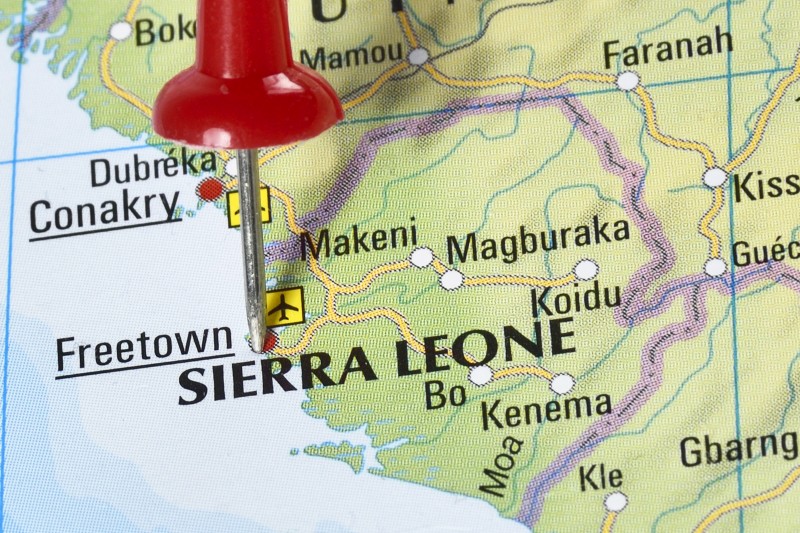Bournemouth University’s Disaster Management Centre (BUDMC) is supporting a number of countries in their response to the global coronavirus (Covid-19) pandemic.
Specifically, BUDMC are working with the government in Sierra Leone on a Covid-19 response strategy. The country has recently declared a 12-month state of emergency as cases of Covid-19 spread further in Africa.
BUDMC has worked with the Sierra Leonean government for a number of years, and contributed advice on managing the national response to the Ebola outbreak in the country in 2014.
More recently, Professor Lee Miles, Professor of Crisis and Disaster Management, is leading a BUDMC team working with the Department of Disaster Management in the Office of National Security (ONS) and Freetown City Council (FCC) in the AFRICAB (Driving African Capacity Building in Disaster Management) project.

Funded by the UK’s Global Challenges Research Fund (GCRF), BUDMC are helping Sierra Leone’s districts to handle both Covid-19 and the challenges of the rainy season in 2020. In particular, the BUDMC - through AFRICAB - is co-producing key publications focused on practically helping the districts of Sierra Leone country-wide and build capacity on the ground and identify and solve single points of failure.
Professor Lee Miles, of the BUDMC, said, “The government in Sierra Leone recognises the value of the AFRICAB project. The government is taking some of the results of the AFRICAB project, alongside lessons learned through managing the Ebola crisis, to actively inform the way they are now responding to Covid-19. We’re working with the government and the districts to build effective disaster management ‘from the ground up’ around Covid-19. In this way, the BUDMC can practically contribute to improving how the country deals with the pandemic as it worsens.”
Many African nations could experience added complications in their Covid-19 response planning, as a change in the weather could bring natural disaster events such as flooding and monsoons, which could further hamper their efforts to curb Covid-19.
Professor Lee Miles continues, “We are seeking to really helping them to build resilience around handling combined scenarios that pose real challenges for the districts of Sierra Leone, and the capital of Freetown in particular. Think about instances of flooding that happen almost annually now in Freetown – the standard response is to move people impacted by flooding to the safety of a large stadium or hall or school. In effect, by placing people out of harm’s way in often large, robust locations. Yet, this poses challenges for any advice necessary to contain Covid-19, such as avoiding large gatherings or social distancing to reduce the spread of the virus. We’re helping to think through how they plan for these challenging combinations of eventualities, and by supporting them, ultimately, in making decisions that may save lives now and in the future.”
The Disaster Management Centre work with governments and aid organisations around the world to train on disaster management – whether natural or man-made – and advise on national resilience plans that can be put in place to prevent loss of life. This work extends to present Covid-19 challenges with active dialogue taking place involving the BUDMC.
The Centre works with governments across the Caribbean, as well as in the Middle East and Africa.
For more information about Bournemouth University’s Disaster Management Centre, or to get in touch, visit www.budmc.uk.



